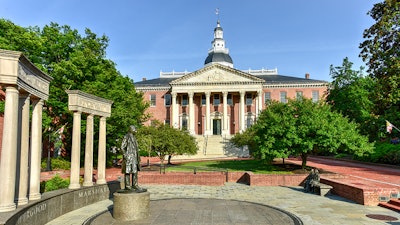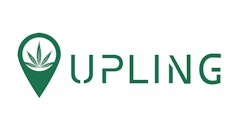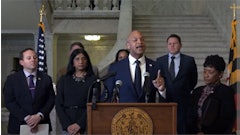
The Maryland Office of Social Equity has released the eligibility requirements for social equity applicants in the state’s upcoming cannabis business licensing round, the fall 2023 cannabis license application period.
This announcement comes two months after Maryland launched its commercial adult-use retail program through existing medical cannabis operators.
“As the only state in the country to exclusively reserve the first round of new cannabis licenses to social equity applicants, Maryland continues to lead the nation in promoting access and equity in the adult-use cannabis market,” Gov. Wes Moore said in a public statement. “Leaving no one behind means ensuring that communities that have borne the brunt of misguided policies have an equal shot at benefitting from this lucrative industry.”
The Cannabis Reform Act of 2023, which Moore signed into law in May, established the Office of Social Equity to issue guidance on the eligibility requirements for social equity applicants based on the statutory framework. The Maryland Cannabis Administration, which regulates the state’s medical and adult-use cannabis markets, must then implement social equity verification and license application processes.
“With the introduction of our new social equity eligibility criteria for the upcoming cannabis licensing application round, Maryland embarks on a transformative trajectory,” Office of Social Equity Executive Director Audrey Johnson said in a public statement. “This forward-looking measure underscores our dedication to rectifying past injustices and ensuring a level playing field. I affirm that by facilitating equal opportunities, we reshape the cannabis industry's narrative, enabling marginalized voices to craft a future that's rich in diversity and vitality. Over the next months, our office will offer support and technical assistance to social equity applicants, making sure they possess the tools necessary to compete fairly for license awards."
The Office of Social Equity used data provided by the Maryland Judiciary, the Maryland State Department of Education and the Maryland Higher Education Commission to conduct statistical analyses and determine the social equity eligibility requirements.
Regulators define a social equity applicant as an entity that is at least 65% owned and controlled by one or more individuals who meet at least one of the following:
- Criteria 1: Has lived in a disproportionately impacted area for at least five of the last 10 years immediately preceding the submission of the application. Review the ZIP codes that have been determined by the Office of Social Equity to meet this criteria in Maryland here.
- Criteria 2: Attended a public school in a disproportionately impacted area for at least five years. Review the list of currently open public schools that have been determined by the Office of Social Equity to meet this criteria in Maryland here.
- Criteria 3: For at least two years, attended a four-year institution of higher education in Maryland where at least 40% of the individuals who attended the institution of higher education received a Pell Grant. Review the list of higher education institutions that have been determined by the Office of Social Equity to meet this criteria here.
Applications for the initial licensing round are not yet available to the public, according to the Maryland Cannabis Administration’s website, but regulators expect to release the application later this month.
Maryland’s medical cannabis operators launched the state’s first adult-use sales July 1 and have since been serving the market until new licenses are issued.
RELATED: Maryland Cannabis Operators Reflect on ‘Bustling Open’ to Adult-Use Sales
The state’s dispensaries reported more than $87 million in combined cannabis sales in July, indicating a trajectory toward a $1 billion market.




















